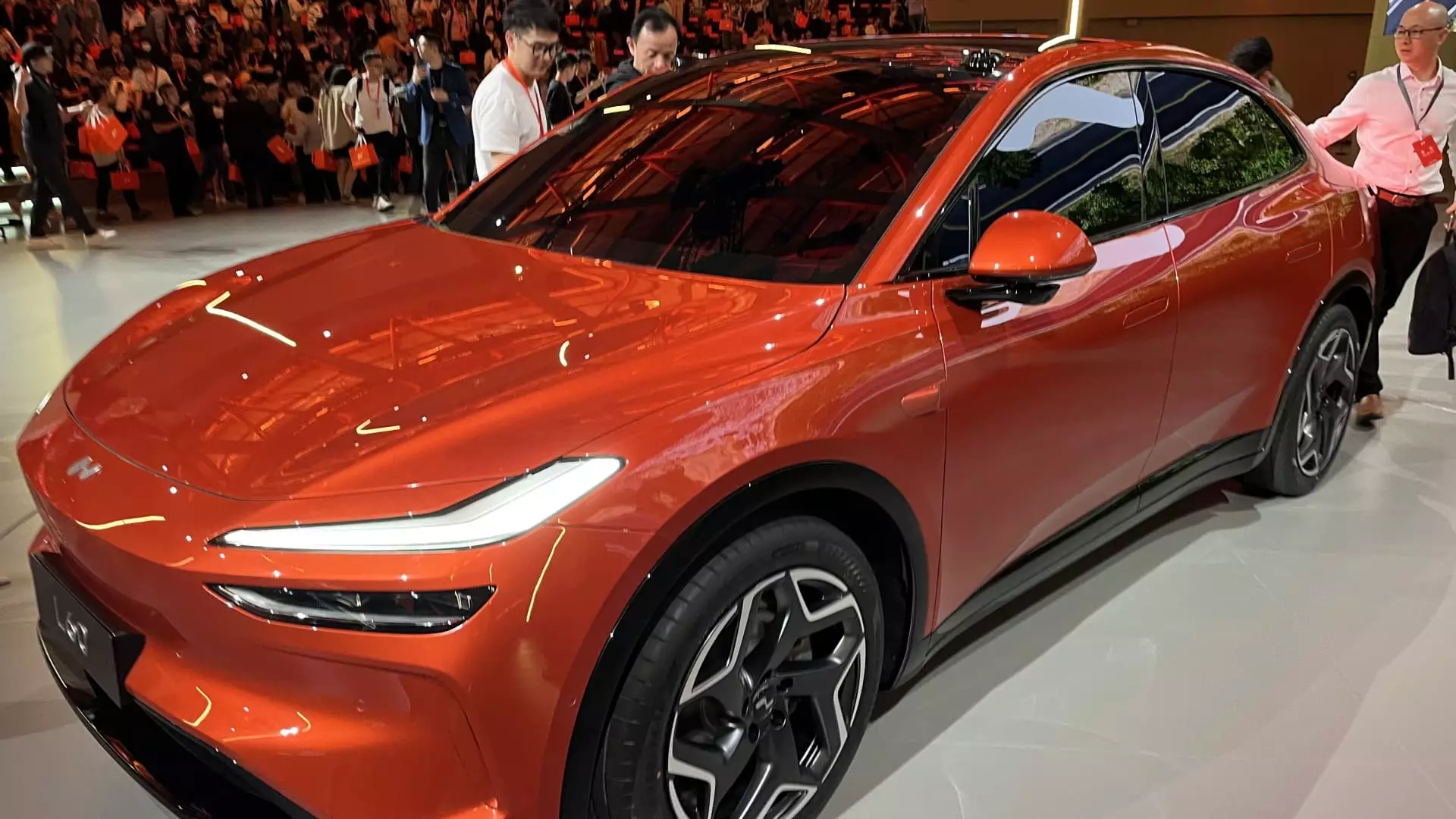In a rapidly evolving automotive landscape, where the electric vehicle (EV) sector gains unprecedented momentum, Chinese manufacturers are aggressively positioning themselves against established names like Tesla. The recent unveiling of Onvo, a new brand from premium electric car manufacturer Nio, marks a significant development. With the launch of the L60 SUV, priced at an eye-catching 149,900 yuan (around $21,210) through a subscription model for battery services, Onvo is set to reshape consumer expectations and price dynamics in the EV market.
The pricing model introduced by Onvo demonstrates a strategic shift aimed at capturing a cost-sensitive segment of the market. By offering a monthly battery subscription service starting at just 599 yuan—approximately $1,000 annually—Onvo effectively removes the hefty upfront costs traditionally associated with EV ownership. This innovative move is not just revolutionary in its financial structuring; it positions the L60 as a more accessible option compared to its contemporaries. For instance, Tesla’s Model Y is marked at a higher starting price of 249,900 yuan. The distinction is clear: Onvo’s offerings appeal to a demographic eager for affordability without sacrificing the benefits of electric driving.
Onvo’s entrance is not merely a blip on the radar; it symbolizes a broader shift within the industry that challenges established competitors. Immediately following the announcement, shares of Nio experienced a notable uptick, reflecting investor confidence in the potential success of this new brand. Such optimism underscores a fundamental characteristic of the Chinese EV market: its rapid responsiveness to consumer needs and technological advancements. As established players like Tesla occupy the higher-end market segments, entrants like Onvo, coupled with competitive pricing, pose a direct challenge to the incumbent leaders’ market share.
Notably, the launch of Onvo comes at a time when other Chinese manufacturers are also vying for a slice of the pie. Brands such as Zeekr and Xpeng are rolling out their mid-range SUVs and coupes, respectively, at prices that often undercut Tesla’s offerings. For example, the Zeekr 7X is projected to start at 239,900 yuan, emphasizing the intense competition within this market segment. Similarly, Xpeng’s Mona series is geared towards making EV ownership more attainable, particularly for younger consumers desiring innovative features at relatively low costs.
While the excitement surrounding Onvo’s launch is palpable, challenges loom, particularly concerning international expansion. The European Union’s impending tariff on Chinese electric vehicles, reaching approximately 20.8% for Nio’s offerings, could significantly affect the brand’s competitive position in one of the most lucrative markets globally. CEO William Li’s candid acknowledgment of these challenges illuminates the balancing act Nio faces as it tries to solidify its position in Europe while navigating geopolitical tensions and trade barriers.
Additionally, while Nio focuses on existing European markets, it must also contend with the longer timelines typical of establishing a premium brand abroad. The establishment of Nio houses in strategic locations like Amsterdam and ongoing infrastructure developments, such as power swap stations, show the brand’s commitment but also highlight the cautious approach they must undertake.
Looking forward, Onvo’s ambitious targets indicate a strong belief in its value proposition. With goals of reaching 10,000 monthly deliveries by December and even greater aspirations for 20,000 vehicles per month in the following year, the brand is not shying away from aggressive growth strategies. If successful, Onvo’s introduction of vehicles under its banner could propel the entire Nio group into a new realm of profitability, with anticipated vehicle margins of around 15%.
As the landscape of the electric vehicle market continues to evolve, Onvo’s entry represents a significant milestone that could disrupt the status quo. With competitive pricing, innovative business models, and a growing array of features directed at enhancing the customer experience, Onvo’s potential cannot be overlooked. The interplay of domestic competition and international challenges will undoubtedly shape the trajectory of their success. In an era where sustainability and technology intersect, Onvo is a brand to watch as it embarks on its journey to redefine electric mobility in China and beyond.

